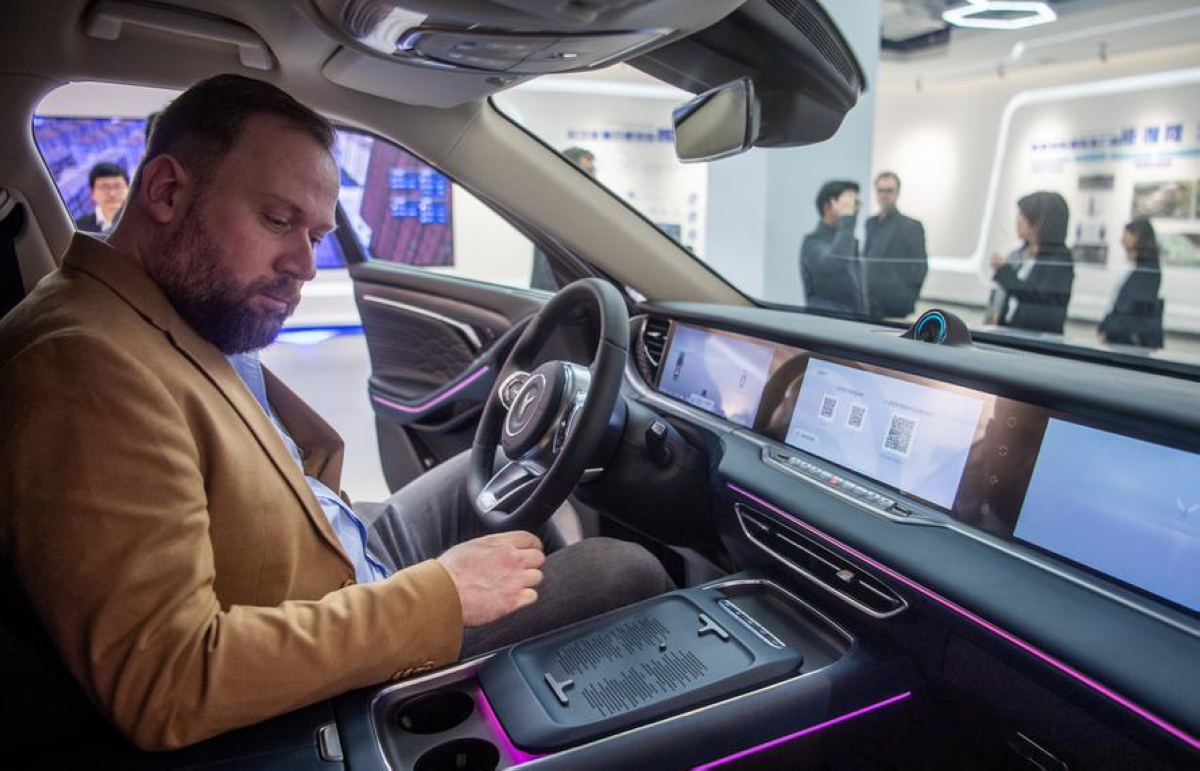
A DELEGATION of over 20 people from Duisburg, Germany, who recently visited Wuhan, capital of central China's Hubei Province, said they anticipated deeper cooperation with the city.
From March 11 to 14, the guests, marking the largest delegation sent by Duisburg over the past 15 years, visited companies in Wuhan related to renewable energy, intelligent vehicles and logistics, among other fields. They also held trade talks with local companies to further consolidate the cooperation between the two cities.
"We attach great importance to the cooperation with Wuhan. I have always been happy to come here, and over more than 40 years, our cooperation in many fields has been great," said Sören Link, mayor of Duisburg, who has visited Wuhan five times.
Although Wuhan and Duisburg are thousands of kilometers apart, they share many similarities — both cities are home to world-renowned steel producers, and both are located on the confluence of two major rivers. In 1982, Duisburg became the first city in Germany to establish a sisterhood relationship with Wuhan.
During the visit, Dominik Bartz, head of Hub International, Duisburg, traveled in a fully self-driving car for the first time.
"The first two to five seconds were really strange, seeing the steering wheel move by itself, but after that, it was a brilliant experience and was really joyful," said Bartz, adding that he hopes to broaden the existing cooperation, especially on battery-powered cars, and is looking for cooperation in the field of hydrogen.
Frank Ahrenhold, head of Sustainable Steel Production at Thyssenkrupp Steel, was impressed by the visit to the Wuhan Iron and Steel (Group) Co.
"It's an extraordinary site, with the cleanliness and a lot of green around it. We also saw the central control room with 5G technology; that is something unique as well. I'm very impressed with the upfront production," Ahrenhold noted.
"There's a lot of potential [for Wuhan and Duisburg] to do something together in green transformation. Because a lot of effort has been made, especially in China and Europe, and we should really team up there," he added.
There are currently over 110 German companies established in Wuhan, making Germany among the top 10 largest trading partners of the city. Meanwhile, a Sino-German international industrial park, with a planned area of 20 square kilometers, has become a new highlight of Wuhan's economic development.
"We started our branch in Wuhan in 2014, and since then, we've been developing on the superfast track," said Jack Ge, the managing director of Webasto (Shanghai) Co., Ltd., Wuhan Branch, which is among the first batch of companies in the industrial park. "We used to produce only automobile roof systems, but now we can manufacture more products, such as high-voltage heaters, charging piles and radar sensor modules," he said.
"What's more, our production lines in Wuhan were all designed by Chinese people, and they have been purchased by many companies in Germany and the United States. Even though we only have around 400 employees, our annual output value surpassed 1.2 billion yuan (about $169 million) last year," Ge added.
"The industrial park looks great. I see great potential," said Daria Kreutzer, head of Foreign Trade, Chamber of Industry and Commerce Niederrhein. "In particular, I think the Germans are really impressed by the very strong ties between your research and your practice, and this is something that the German companies can also learn from," she said.
For Kreutzer, the trip to Wuhan has been a useful opportunity to gain insights and gather data.
"It is actually good that I'm here to get all this information because then I can just take everything I get here, take it back, and then present it in front of our companies," she added.
Read The Rest at :






